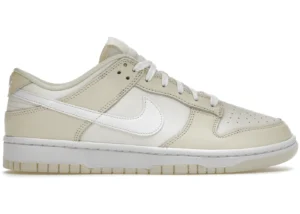coconut milk dunks: Coconut milk dunks, often referred to as coconut bowls, have become a trendy and eco-friendly choice for serving smoothie bowls, salads, and other delicious dishes. These beautiful, sustainable kitchen accessories are not only visually appealing but also environmentally responsible. However, just like any other kitchenware, coconut milk dunks require proper care and maintenance to ensure their longevity and hygiene. In this article, we will guide you through the process of cleaning your coconut milk dunks effectively.

Why Clean Your Coconut Milk Dunks?: coconut milk dunks
Cleaning your coconut milk dunks is crucial for several reasons:
- Food Safety: Properly cleaning your dunks helps remove leftover food particles, preventing the growth of harmful bacteria that can make you sick.
- Longevity: Regular cleaning and maintenance will extend the life of your coconut milk dunks, allowing you to enjoy them for years to come.
- Appearance: Keeping your dunks clean ensures they maintain their natural beauty and luster.
Now, let’s dive into the steps to clean your coconut milk dunks properly:
Materials You’ll Need:
- Warm water
- Dish soap
- Soft sponge or cloth
- Baking soda (optional)
- Coconut oil (optional)
Step 1: Empty and Rinse: coconut milk dunks
Start by emptying any leftover food or liquid from your coconut milk dunk into a compost or trash bin. Rinse the dunk with warm water to remove any remaining debris. This step helps to prevent food residues from sticking during the cleaning process.
Step 2: Prepare a Soapy Solution
Fill a basin or sink with warm water and add a few drops of mild dish soap. Avoid using harsh chemicals or abrasive scrubbers as they can damage the natural texture of the coconut shell.
Step 3: Gently Scrub: coconut milk dunks
Dip a soft sponge or cloth into the soapy solution and use it to gently scrub the inside and outside of the coconut milk dunk. Pay extra attention to any stubborn spots or stains. Avoid scrubbing too vigorously, as this could scratch or damage the surface.
Step 4: Rinse Thoroughly
After scrubbing, rinse the coconut dunk thoroughly with warm water to remove any soap residue. Make sure there are no soapy traces left inside the dunk, as this can affect the taste of your food.
Step 5: Drying: coconut milk dunks
To prevent mold or mildew from forming, it’s essential to dry your coconut milk dunk completely. You can air dry it by placing it upside down on a clean dish rack or towel. Ensure that it is kept in a well-ventilated area.
Optional Step: Deodorizing and Polishing
If you notice any lingering odors or want to restore the shine to your coconut milk dunk, you can use baking soda and coconut oil:
- Deodorizing: Sprinkle a small amount of baking soda inside the dunk, and let it sit for a few hours or overnight. Rinse it thoroughly to remove the baking soda and any odors.
- Polishing: To maintain the natural shine of your coconut dunk, apply a small amount of coconut oil to a cloth and rub it gently on the surface. This step can help revitalize the coconut shell’s appearance.
Tips for Maintenance: coconut milk dunks
- Avoid Dishwashers: Coconut milk dunks are not dishwasher safe. Hand washing is the best way to clean them.
- Regular Cleaning: Clean your dunks after each use to prevent food residue from hardening and becoming difficult to remove.
- Store Properly: Store your coconut milk dunks in a cool, dry place to prevent mold growth.
In conclusion, cleaning your coconut milk dunks is a simple but necessary process to maintain their hygiene and appearance. With regular cleaning and proper care, your dunks can continue to serve as beautiful and sustainable additions to your kitchenware collection. So, take a few minutes to clean your coconut milk dunks after each use, and you’ll be able to enjoy their natural charm for years to come.


Comments are closed.